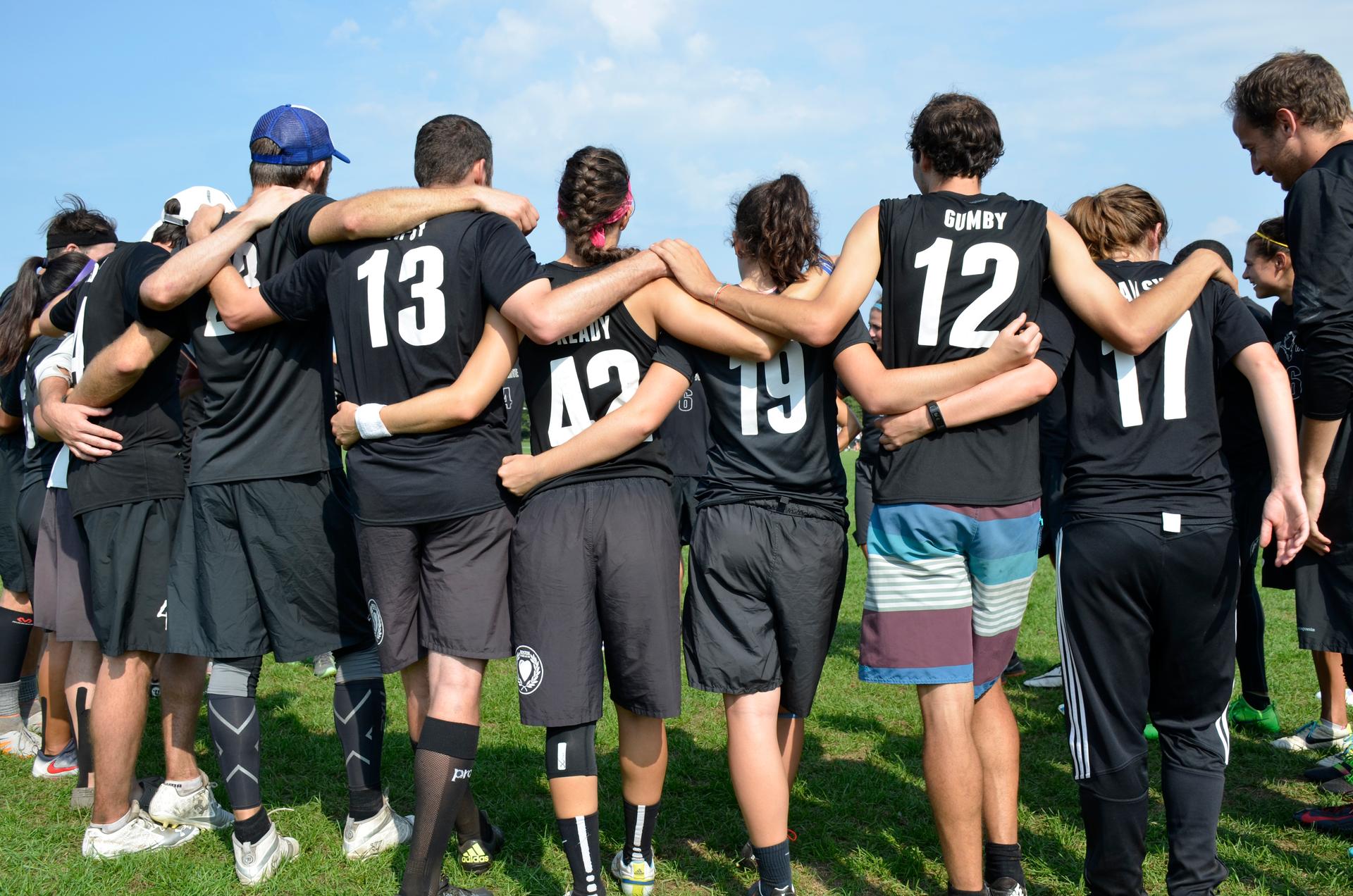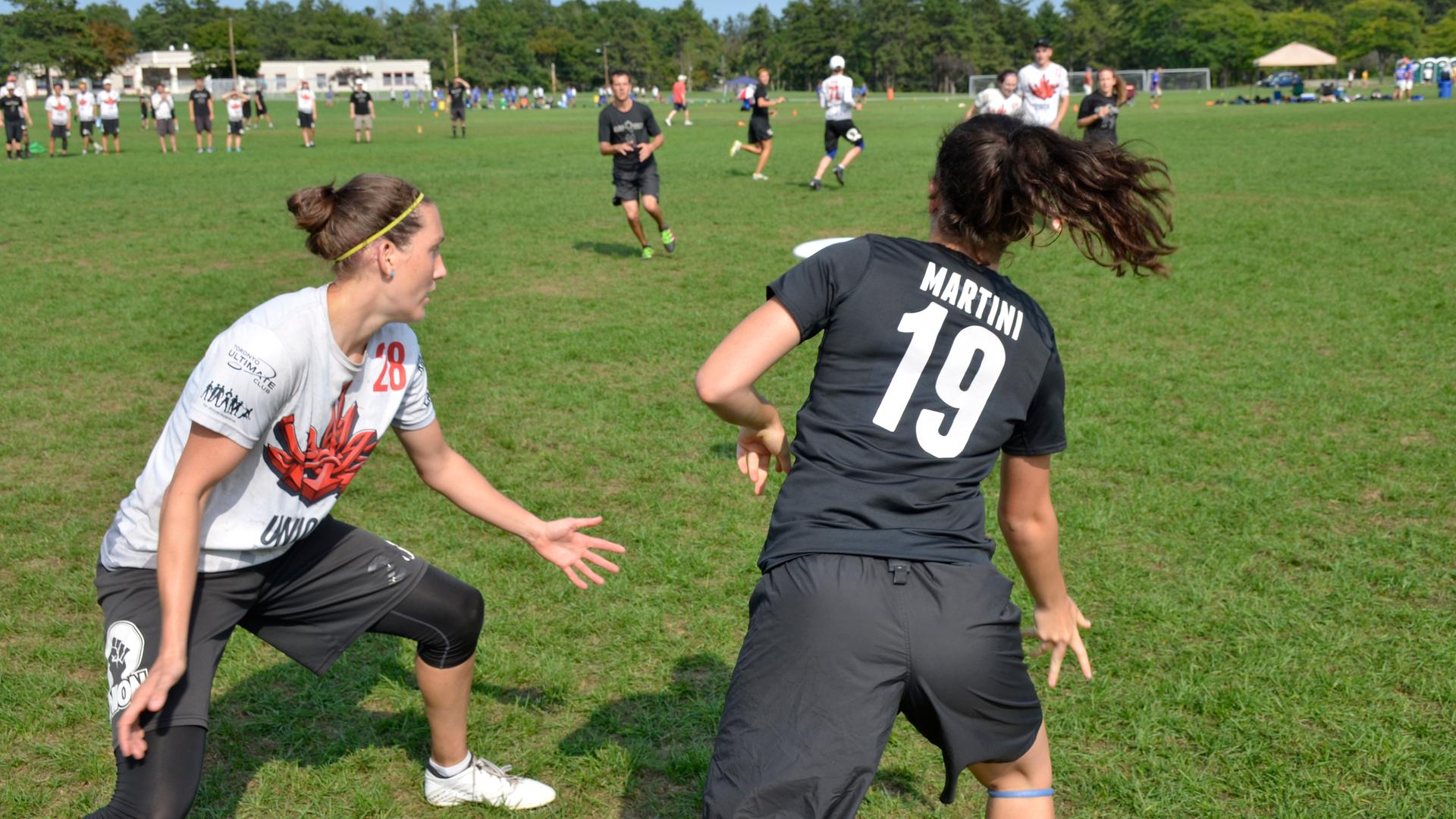A mixed Ultimate Frisbee game in Devens, Mass. between the teams Boston Slow White and Toronto Union. Boston won the game and ultimately a trip to the national championships.
With all due respect, when I think of Frisbee, I don’t think of the world’s finest athletes. I’m not alone in this regard.
“People think of Ultimate [Frisbee] as a bunch of guys running around smoking weed, hanging out with dogs,” says Alex Trahey, a co-captain of Boston Slow White, the second-ranked mixed Ultimate Frisbee team in the nation. “It is in fact a very competitive and athletic sport, and we like to showcase that.”
Trahey, and his co-captain, Hannah Baranes, are serious athletes. But they also both say that image of Frisbee being a laid-back beach and barbeque game … that’s right too. And that’s a good thing.
“Because I think one thing that’s really cool about Ultimate is that people get familiarity with throwing a Frisbee as a fun thing, and when they discover a sport attached to it … the more Frisbees that are out there getting tossed, the more likely you’re to get a person to be active and get them playing down the road,” Baranes says.
Ultimate Frisbee is hugely popular in the US. Nearly 4.5 million Americans played the game last year — more than ice hockey and lacrosse combined. And hundreds of millions could be introduced to the sport's serious side in eight years: Ultimate is among the events being considered for inclusion at the 2024 Summer Olympics.
OK, quick timeout for the uninitiated. Ultimate is kind of like soccer meets football, but with a Frisbee.
Seven players try to push the Frisbee 70 yards down field into the other team’s end zone. (In the "mixed" version, it can be either four men or four women on the field at one time.) One player is the handler — the sport's version of a quarterback. The handler tosses to a cutter (receiver), who then becomes the new handler, or quickly gets the disc in the hands of a better thrower. And so on and so on until the Frisbee is caught in the end zone. Or — if the disc hits the ground — the defensive team takes over on offense.
Players sprint, dive, and time leaps to snatch a spinning Frisbee slowly floating back down to earth. It’s high-octane, impressive stuff. In slow-mo, this stuff is going to look amazing at the Olympics.
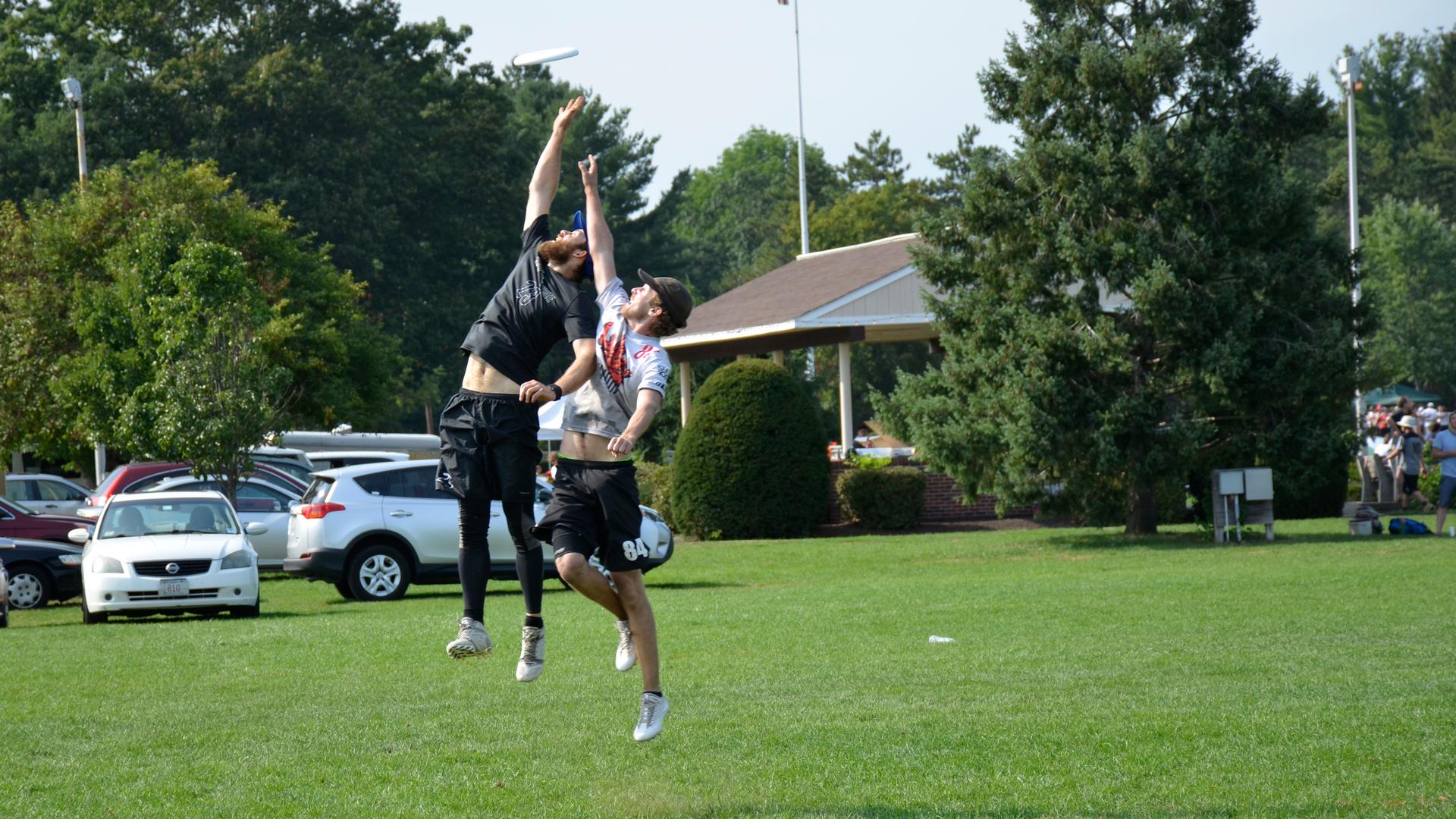
The games could use more events like this. The Rio Olympics produced its share of memorable moments, but NBC’s television ratings were way off — 15 percent lower than the broadcast four years earlier at the London Games. That’s not just a concern for broadcasters, but also for the International Olympic Committee. One way to boost interest in the games is by adding new, exciting events.
Kirsten Lundquist, who also plays for Boston Slow White, hopes her sport will make the docket.
“I think it would be great. I think women’s sports have made tremendous strides, but it’s still very inequitable across the globe,” she says. “So, anything to promote women in sport, and I think a mixed-gender athletic event is really great, because it really emphasizes the parity between men and women because they’re sharing the same field.”
Ultimate Frisbee would be the first mixed-gender team sport in the Olympics. Some sports allow pairs of male-female athletes in events like tennis, badminton, and two-person sailing.
Selling out?
I asked co-captain Baranes if she’s excited her sport is being considered for the 2024 Olympics.
“My instinct says yes, but…”
She hesitated with her answer because she’s heard a lot of arguments against Olympic inclusion. Her co-captain, Trahey, shares a bit of her ambivalence.
“Getting to the Olympics is necessarily going to mean a little bit more competitiveness and a little bit more cutthroat attitude. I think if we do it right and we showcase what’s good about Ultimate, that we emphasize this fair play and respect, and spirit of the game, then yes,” Trahey says. “I think if we sacrifice our values to get there, it’s not worth it.”
One value is inclusion. Many worry that mixed teams going for gold might heavily favor the men on the field and effectively ignore their female players.
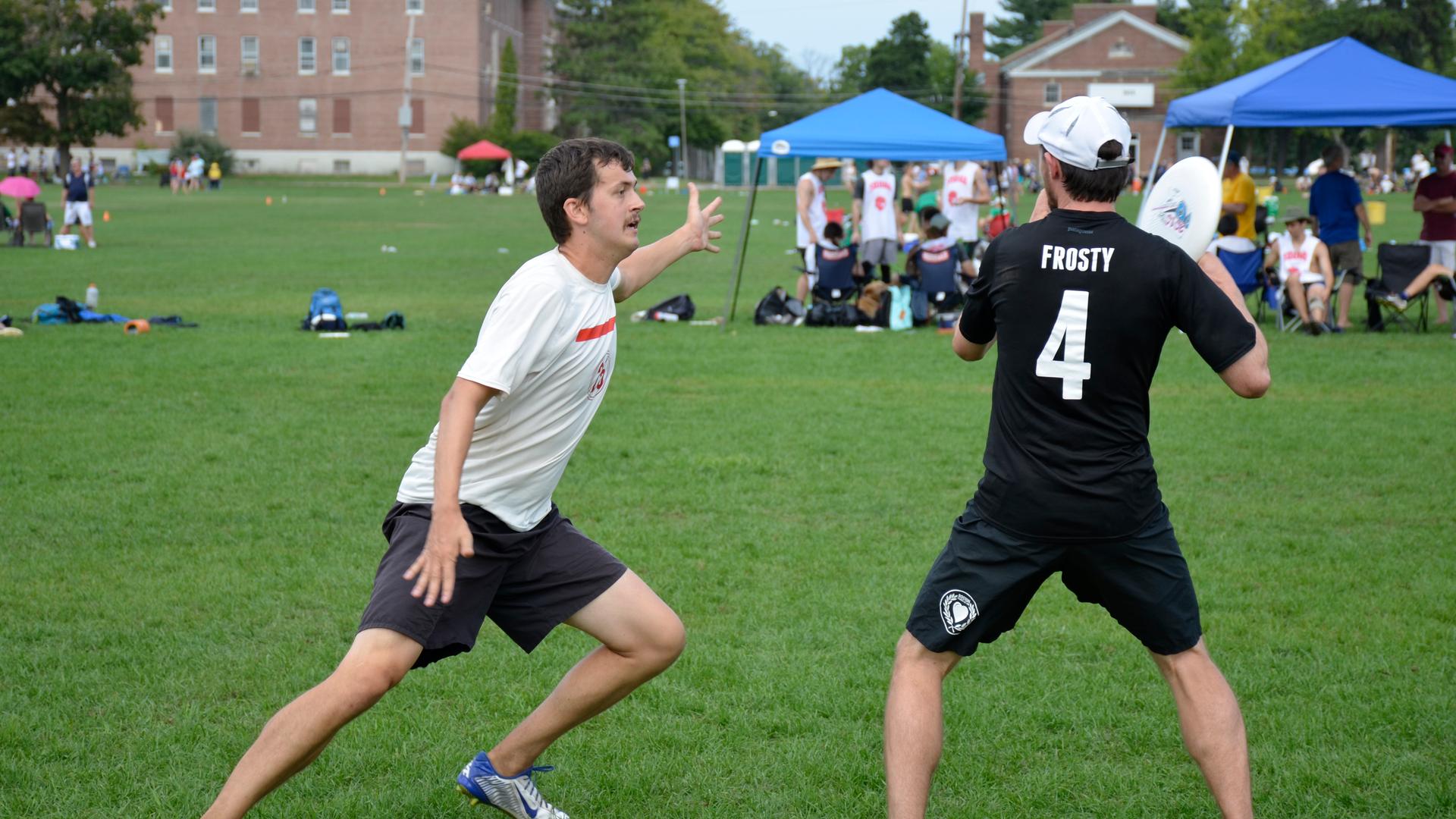
Another value of the sport is self-officiating.
I saw a few fouls get called at a regional finals tournament I attended in Devens, Massachusetts — nobody put up a fuss or challenged any calls. But if a gold medal is on the line, do you think they’re going to let the players have that much power? (For big matches, Ultimate uses “observers,” a neutral third party that can hear an appeal.)
Like many, Marshall Goff, the coach of Slow White, is concerned about how the Olympics might change the way the game is officiated.
“The more pressure there is, the more visibility, the more outside influence, how does it play on TV, how fast does it move, all of those things are hard to predict as they ramp up,” Goff says.
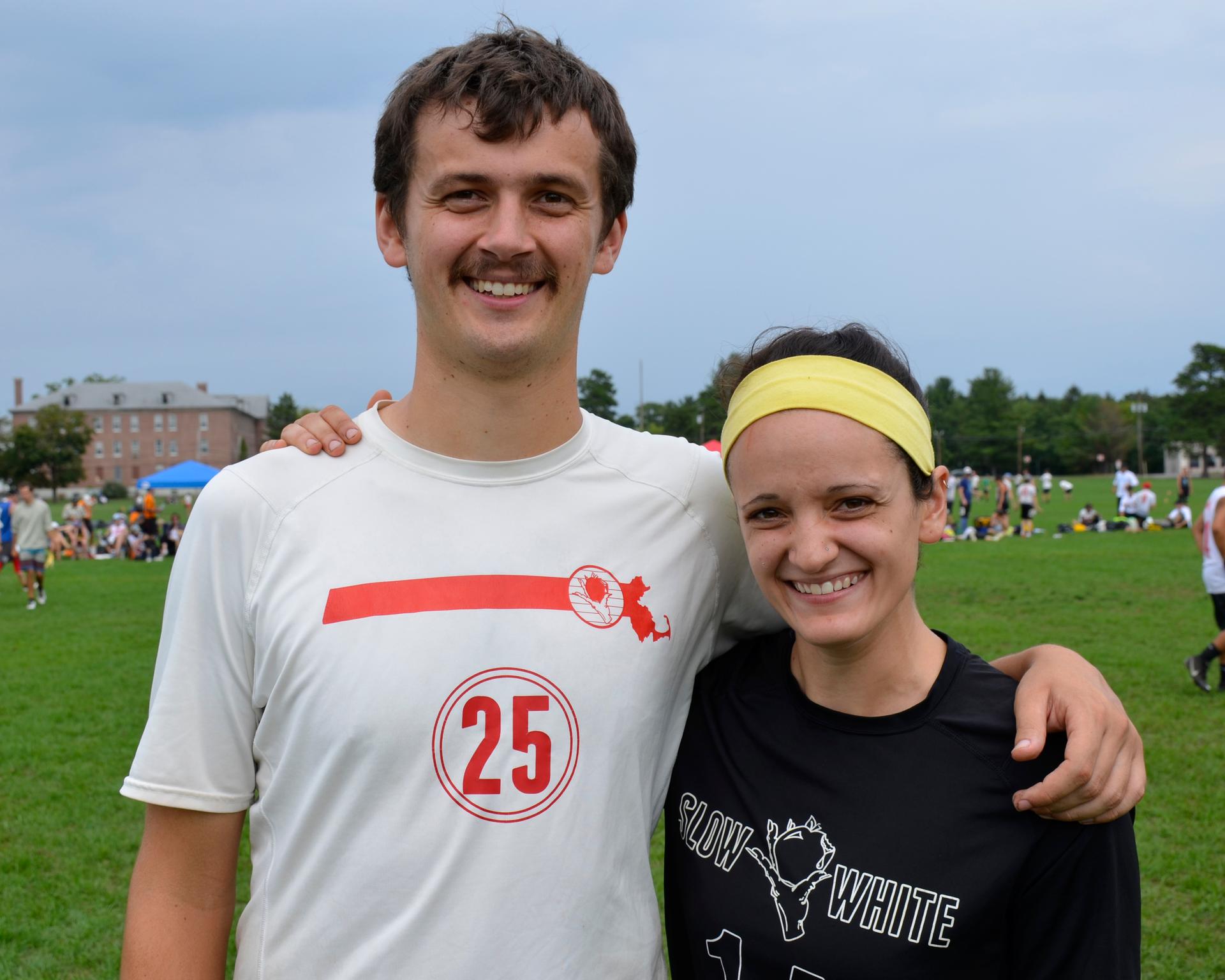
Ultimate prides itself on being laid-back, even at the top levels. With a trip to the national championships on the line, teams at the regional finals in Massachusetts danced around, acting silly during warmups.
Tom Crawford, the CEO of USA Ultimate, believes the game can maintain its counterculture appeal and also become a more serious sport. He came to Ultimate from the mainstream, after front-office stints in professional football, hockey and basketball.
“Because of all the different roles I’ve had in sport, I’ve seen the good, the bad, and the ugly,” he says. “I really believe in the power of sport to enhance human existence. And so when I saw Ultimate, it was like, man, everything is baked into this sport that I love about sport, let’s grow this sport so more people discover it like I just did.”
And what better way to do that than securing a spot on the world’s biggest stage? But will Olympic inclusion get more kids playing at the youth levels?
“Well that’s a good question,” says David Goldblatt, author of the new book, “The Games: A Global History of the Olympics.” He says linking participation rates to Olympic inclusion is complicated.
“Because what determines global levels of participation in a sport, if one could measure such a thing, is often dependent on quite a lot more than whether it was on the Olympics or not.”
The International Olympic Committee has a somewhat opaque process for how a new event gets included in the games. The sport has to promote gender equality, appeal to youth, and be played in many countries. And it has to draw fans.
“I mean eyeballs, that seems to me is the No. 1 issue. It’s just about eyeballs,” Goldblatt says.
And for those purists who think Ultimate Frisbee doesn’t deserve a spot at the Summer Olympics, get used to the counterculture coming whether you like it or not: Skateboarding and surfing will be at the next Summer Games in Tokyo in four years.
